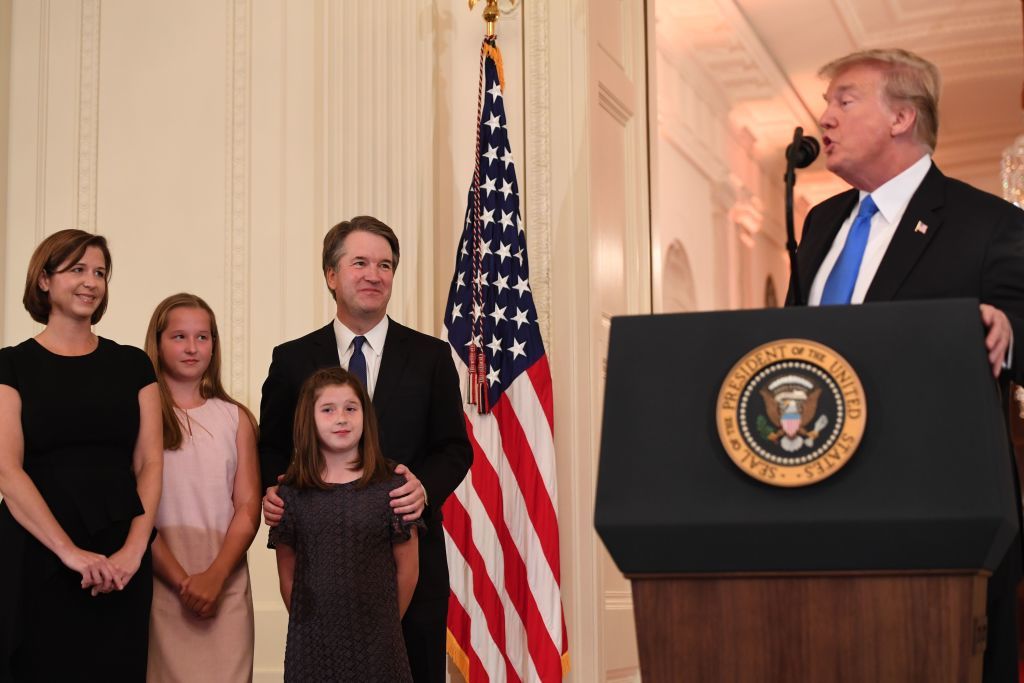After reciting the usual homilies about the need to interpret the American Constitution as it was written, President Trump appeared visibly bored once his nominee for the Supreme Court, Brett Kavanaugh, took the podium. Who could blame him? There was little Trump could do to inject much excitement into the proceedings and it’s never as much fun to make a solemn announcement as it is to rant and rave in front of tens of thousands of your pursuivants in a sports arena or to send out tweets denouncing NATO or threatening a trade war with China.
To be sure, Kavanaugh had clearly been primed on how to curry favor with his benefactor. He was careful to make the outlandish claim upfront that “no president has ever consulted more widely or talked to more people from more backgrounds to seek input for a Supreme Court nomination.” Trump himself called the 53-year-old Kavanaugh “one of the finest and sharpest legal minds of our time.” But soon enough, Trump was swaying back and forth, smiling tightly as Kavanaugh talked about his children’s sports accomplishments and his debt to Elena Kagan for hiring him to teach at Harvard law school.
The contrast between Trump, the gilded son who was handed millions by his old man, and Kavanaugh, whose father went to law school, could hardly have been starker. Kavanaugh lacked Trump’s swagger and forcefulness at the microphone but he came across as a well-intentioned fellow. At bottom, he seems to be a dweeb.
Some of Trump’s impatience can be ascribed to the fact that he doesn’t really care about the Supreme Court in any fundamental way. But maybe another part derives from the fact that even though he has appointed two justices, they aren’t Trump judges. Which is to say that Kavanaugh, like Gorsuch, appears to be your standard issue hard-line conservative but not a judicial Robespierre. Indeed, George W. Bush was quick to post a statement declaring that Trump made an “outstanding decision” in nominating Kavanaugh.
Democrats will bore in on Kavanaugh’s service to Starr and try to draw comparisons between Bill Clinton’s pettifoggery and Trump’s. In particular they will focus on the report’s focus on presidential obstruction of justice. But with the Republican establishment backing him, Kavanaugh should not find the road to confirmation particularly challenging, though Senator Rand Paul is making noises about being undecided based on constitutional privacy concerns. Senators Susan Collins and Lisa Murkowski are sure bets to back him. The pressure will be on red state Senators to join in.
For conservatives, many of whom are suffering from PTSD, or post-traumatic Souter syndrome, after David Souter, the justice from New Hampshire whom George H.W. Bush appointed, only to see him move quickly away from the right, Kavanaugh represents a safe and reliable choice. He will create a safe space for conservative doctrines on the Supreme Court.
For Trump the upsides are obvious. Kavanaugh’s defenses of the unitary executive theory— a fancy term for the imperial presidency—and statements about the sanctity of the office — presidents should be exempted from undue prosecutorial scrutiny — are likely what put him over the top with Trump. Now begins the battle royale over his confirmation.

























